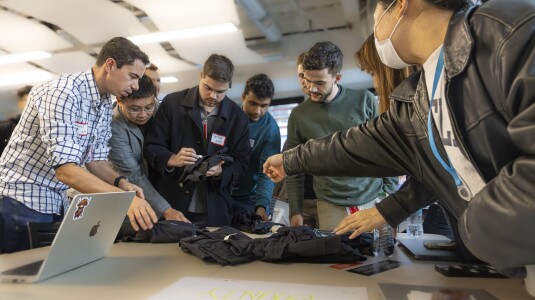Fine-tuning a pre-trained language model using annotated data has become the de-facto standard for adapting general-purpose pretrained models like BERT to downstream tasks. However, given the trend of larger pretrained models, fine-tuning these models for each downstream task is parameter-inefficient and computationally-expensive deeming this approach sub-optimal for adoption by NLU systems. In recent years, various approaches have been proposed for parameter efficient task adaptation such as Adaptor, Bitfit, Prompt tuning, Prefix tuning etc. However, most of these efforts propose to insert task specific parameters in-between or inside intermediate layers of the pre-trained encoder resulting in higher computational cost due to backpropagation of errors to all layers. To mitigate this issue, we propose a light but efficient, attention based fusion module which computes task-attuned token representations by aggregating intermediate layer representations from a pre-trained network. Our proposed fusion module trains only 0.0009% of total parameters and achieves competitive performance to the standard fine-tuning approach on various tasks. It is also decoupled from the pre-trained network making it efficient during computation and scalable during deployment. Last but not the least, we demonstrate that our proposed attention-fusion mechanism can transfer effectively to different languages for further re-use and expansion.
Attention fusion: A light yet efficient late fusion mechanism for task adaptation in NLU
2022
Research areas




